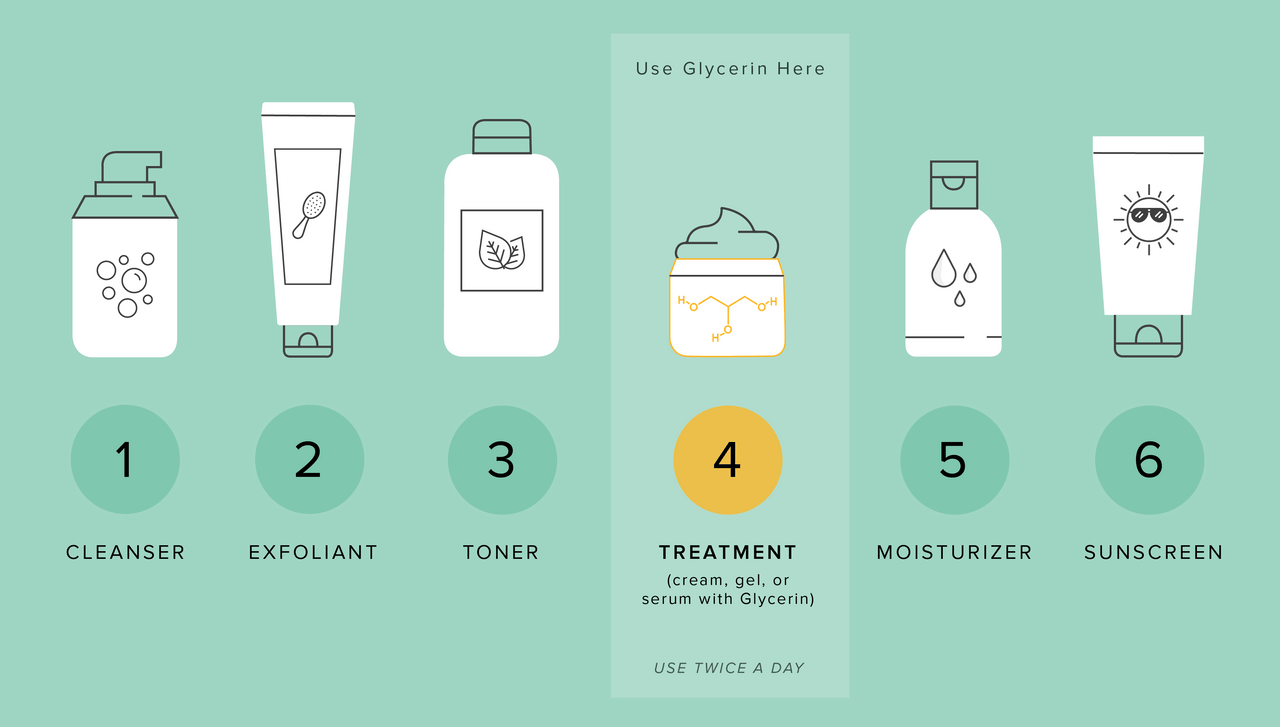If you look at almost any skincare label—serums, moisturizers, toners—you’ll likely see glycerin near the top of the ingredient list. It’s one of the most widely used humectants in beauty, loved for keeping skin hydrated and soft.
But for Muslim consumers, a key question arises:
👉 Is glycerin halal?
The answer depends on where it comes from. Let’s break it down.
What Is Glycerin?
Glycerin (also known as glycerol) is a clear, odorless liquid with powerful water-binding properties. In skincare, it:
-
Attracts and retains moisture in the skin.
-
Strengthens the barrier to reduce dryness and irritation.
-
Enhances absorption of other active ingredients.
It’s safe, gentle, and suitable for almost all skin types.
Sources of Glycerin
Not all glycerin is the same—its halal status depends on its origin:
-
Plant-Derived Glycerin
-
Extracted from natural plant oils such as coconut, soy, or palm.
-
100% halal-friendly.
-
Most commonly used in clean, vegan, and halal skincare.
-
-
Animal-Derived Glycerin
-
Extracted from animal fats (commonly tallow).
-
If the source is non-halal slaughtered animals or pigs, it is haram.
-
Rare in modern skincare, but still used in pharmaceuticals or low-cost products.
-
-
Synthetic Glycerin
-
Made in labs using petrochemical processes.
-
Halal-friendly when verified as free from animal contamination.
-
Why Halal Certification Matters
Even if glycerin is technically plant or synthetic, cross-contamination during processing can occur. This is why halal certification is essential—it ensures not just the ingredient source, but the entire supply chain is verified as halal.
At Purelab Care, we use only plant-based glycerin, validated through third-party halal certification for complete transparency and trust.
How to Tell If Glycerin in Your Skincare Is Halal
-
Check labels: Look for “vegetable glycerin” or “plant-derived.”
-
Look for certification: Halal-certified products have been fully verified by authorities like JAKIM, IFANCA, or MUI.
-
Choose trusted brands: Purelab Care guarantees plant-based, halal-compliant glycerin in every formula.
✅ Glycerin & Halal: Frequently Asked Questions
1. Is all glycerin halal?
No. Only plant-based, synthetic, or halal-certified animal-derived glycerin is permissible. Non-halal animal sources make it haram.
2. Is glycerin vegan?
Plant-derived glycerin is vegan. Animal-derived glycerin is not. Synthetic glycerin may or may not qualify as vegan, depending on the process.
3. Can glycerin come from pork?
Yes—pork fat can be used to make glycerin, but this form is always haram and never permissible in halal skincare.
4. Is glycerin safe for sensitive skin?
Yes. Glycerin is one of the gentlest hydrators and is suitable for even the most sensitive skin types.
5. Why does Purelab Care only use plant-based glycerin?
To ensure halal integrity, vegan compatibility, and universal safety—all without compromise.
The Bottom Line
-
Halal: Plant-based and synthetic glycerin, halal-certified animal-derived glycerin.
-
Haram: Pig-derived or non-halal animal glycerin.
-
Best choice: Plant-derived glycerin for guaranteed halal and vegan compliance.
At Purelab Care, we source only plant-based glycerin, tested and certified to meet the highest global halal standards—so you can hydrate your skin with confidence.



